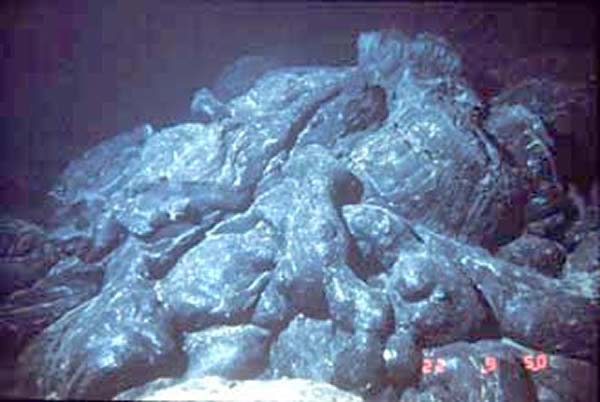 |
| Image courtesy of Wikipedia |
Kolumbo, as many underwater volcanoes tend, is located near an oceanic ridge at an area of subduction, where "new oceanic crust is created," according to our text.
 |
| Image courtesy of https://oceanexplorer.noaa.gov |
"The main seismic hypocentres beneath Kolumbo are located at depths of 6–9 km, indicating a high level of magmatic activity below this volcano."
Kolumbo is still active, emitting magma into the ocean. When the magma exits the volcano, the water around it quickly cools, creating a crust around the flow, creating what is called a "pillow lava."
The last major eruption was in 1650, a year after the discovery of Kolumbo. Given that it's been 368 years, a catastrophic event such as the previous eruption seems unlikely any time soon, but I would imagine still possible with the aforementioned activeness. In fact, Kolumbo has "erupted and been reborn from it's ashes twelve times" in the past 500,000 years. Unfortunately, with as volatile as volcanoes can be, you can never be so sure.
No comments:
Post a Comment